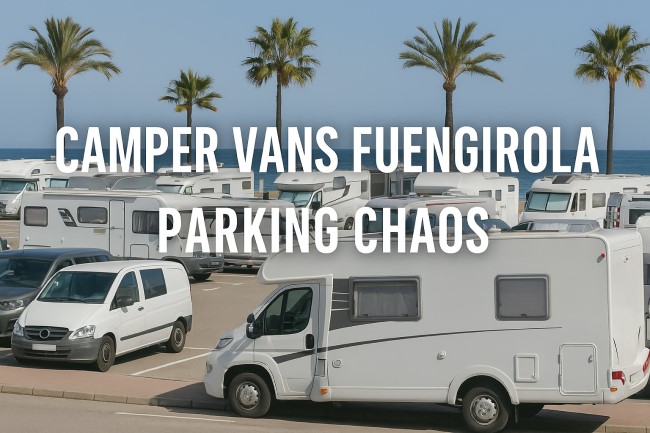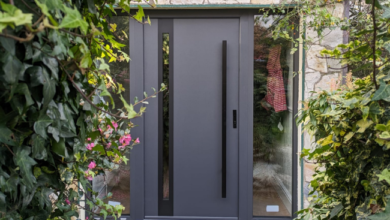Camper Vans Fuengirola Parking Chaos: Growing Frustrations on the Costa del Sol

The idyllic coastal town of Fuengirola, nestled along Spain’s stunning Costa del Sol, is no stranger to tourism. Its sunny climate, vibrant beaches, and welcoming vibe make it a hotspot for travelers year-round. But in recent years, a specific trend has sparked local tension and media attention—the influx of camper vans and motorhomes overstaying in public areas, leading to what many now describe as the camper vans Fuengirola parking chaos.
The Rise of Van Life in Spain
A Trend Fueling Mobility and Freedom
Across Europe, and especially in Spain, the popularity of “van life” has grown dramatically. Whether due to economic travel, remote working, or a desire to live freely on the road, more tourists are now choosing to explore the country in camper vans or motorhomes.
Fuengirola, with its easy coastal access and mild winter temperatures, has become an attractive location for van dwellers. However, the town’s infrastructure has struggled to accommodate the volume, triggering parking problems for motorhomes in Fuengirola and across the Costa del Sol.
Why Camper Vans Are Causing Parking Chaos in Fuengirola
Lack of Designated Motorhome Parking Areas
One of the main issues is the absence of an official motorhome parking site in Fuengirola. Unlike other towns that offer designated parking zones equipped with proper waste disposal, electricity, and security, Fuengirola has no such facility. This leaves visitors no option but to park in regular spaces—often in popular areas like the fairground, beachfront promenades, or residential streets.
Breach of the 48-Hour Rule
According to local regulations, camper vans are allowed to park in public areas for a maximum of 48 hours—and only if they’re not camping (i.e., using external equipment, dumping waste, or extending awnings). Yet, many motorhome users remain far longer, often for several weeks, which goes unnoticed or unenforced by local authorities. This has contributed heavily to the camper vans Fuengirola parking chaos.
Local Residents Voice Their Frustration
Growing Tensions in the Community
The extended presence of motorhomes has led to growing frustration among Fuengirola residents. Locals report that some van dwellers are improperly disposing of waste, overcrowding parking lots, and using public infrastructure such as water taps, drains, and bins as if they were private facilities.
Environmental and Health Concerns
Without dedicated dumping stations or waste disposal sites, improper sanitation becomes a concern. Residents have complained of unpleasant odors, littering, and even cases of black water (sewage) being dumped into storm drains. This not only poses health risks but also tarnishes the image of Fuengirola as a clean, family-friendly tourist destination.
Official Response: Enforcement or Oversight?
What the Town Hall Is Saying
Fuengirola’s local council has acknowledged the issue, stating that municipal police are monitoring the situation and issuing fines where necessary. In theory, penalties ranging from €300 to €750 can be applied for parking violations or unauthorized camping.
Is Enforcement Working?
Despite these assurances, locals claim enforcement is weak and sporadic. Some motorhomes move a few meters every couple of days to skirt regulations, while others seem to remain untouched for weeks. The lack of consistent monitoring only fuels more rule-breaking and worsens the camper van congestion.
Broader Context: A Costa del Sol-Wide Problem
Not Just a Fuengirola Issue
This problem extends beyond Fuengirola. Other coastal towns like Benalmádena, Mijas, and Marbella have also faced increasing motorhome traffic without sufficient infrastructure. The entire Costa del Sol has become a magnet for van travelers, many of whom seek free or low-cost stays during the off-season.
Calls for Regional and National Solutions
Several camper van associations and local councils are calling for regional guidelines and investment in motorhome infrastructure. Suggested solutions include:
-
Building official motorhome areas with services.
-
Implementing uniform rules across municipalities.
-
Increasing awareness and education for van users about legal parking and sanitation.
The Camper Perspective: Why Van Dwellers Choose Fuengirola
Affordability and Climate
Many camper van travelers—particularly retirees and digital nomads—choose Fuengirola because it offers free parking, proximity to the beach, and mild winters. Compared to expensive campsites or hotels, parking in town offers a budget-friendly and scenic alternative.
Lack of Clear Alternatives
Most van owners say they would happily use a designated area—if one existed. Without official spots, they’re left to guess what’s allowed, often relying on apps like Park4Night or word of mouth.
Related Keywords and Trends in 2025
Van Life Spain Problems
Spain’s relaxed climate and welcoming culture have made it a hub for van life, but also exposed a lack of preparedness in many tourist towns. Topics like motorhome waste disposal Spain, free overnight parking Spain, and Spain camper van laws 2025 are trending among travelers and municipalities alike.
Motorhome Parking in Fuengirola and Beyond
The keyword “motorhome parking in Fuengirola” has seen increased search traffic, especially during holiday seasons. Tourists are also looking up “Costa del Sol camper van rules” and “Spain van life parking fines” as they try to stay within the law while enjoying mobile travel.
Conclusion: A Need for Balance
The camper vans Fuengirola parking chaos highlights a broader conflict between modern travel trends and urban infrastructure. While van life offers freedom and affordability, it must be balanced with respect for local communities and the environment.
Fuengirola stands at a crossroads. Without investment in infrastructure and more consistent enforcement, the problem is likely to worsen, impacting both residents and responsible travelers. A solution will require collaboration between authorities, residents, and van users—and most importantly, a willingness to adapt to a new era of mobile tourism.



